Table of Contents
Simon O’Connor
Husband, step-father, and longtime student of philosophy and history. Also happen to be a former politician, including chairing New Zealand's Foreign Affairs, Defense, and Trade Committee.
Groucho Marx famously said, “These are my principles, and if you don't like them... well, I have others.”
There appears to be growing cadre of people who really do have shifting principles depending on whether the situation suits them or not. Unlike Groucho, they are not comedians nor are trying to make a witty point.
Two recent examples illustrate this. One is some bar-goers in Christchurch who have raced to media to express concern that dress standards in private venues are discriminating against their self-expression. The other is a newspaper that seems happy to be both creating the news and reporting on it.
NOT HAVING A BAR OF IT…
It was recently reported that Christchurch bars and nightclubs have dress standards for those wishing to enter their private premises. Those interviewed expressed frustration that they could not express themselves and thought it archaic that a business could tell them what to wear as a condition of entry.
Now, I don’t have a particular opinion on what constitutes appropriate dress for a bar or evening venue. In fact, I think it’s a trifling matter. However, what struck me was how the ability of private businesses to create their own rules were being questioned in this situation, yet where previously celebrated in other situations.
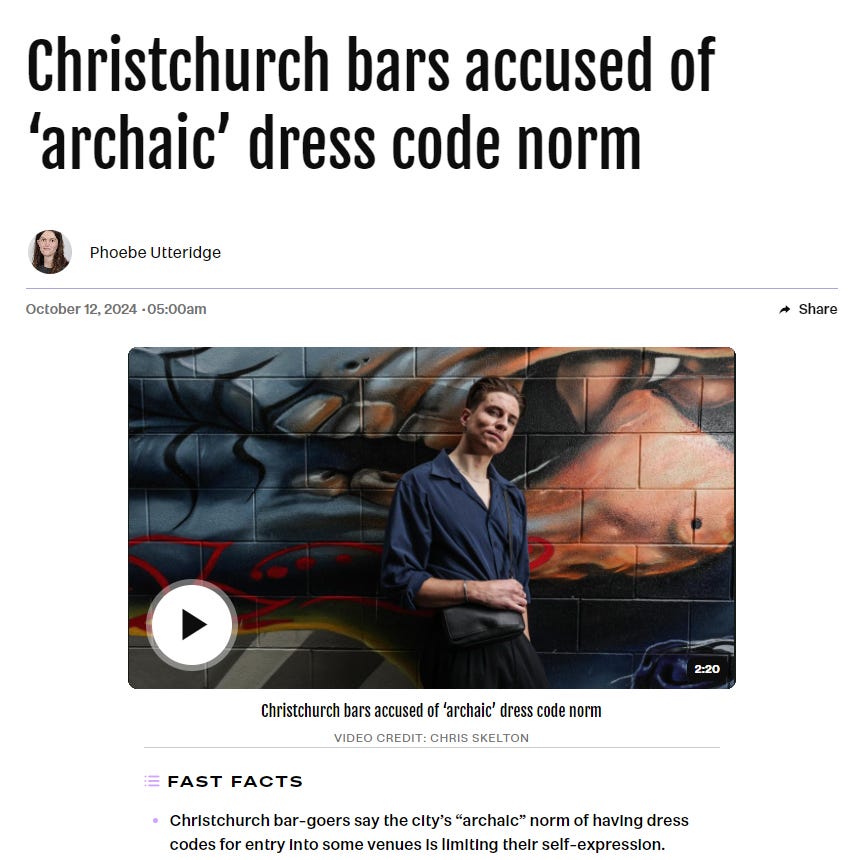
I recall during the government-mandated Covid days how many celebrated the ability of private businesses to set rules, notably around who could and could not enter their premises. You will also recall such businesses could set employment rules, distance guides, and so forth. I recall gleeful media reports highlighting how moral it was for private business owners to create such rules. Yet when it comes to private bars in Christchurch and their rules, all of a sudden there is outrage.
So which is it – are private businesses allowed to make their own rules, or not?
As a society, we do seem to have a rather arbitrary approach to such matters. It really does appear to be whatever suits certain groups at the time. There is little consistency other than mainstream media (and others) deciding which side they like and reporting accordingly.
If you needed a couple of other examples, think of X (or Twitter). Before Elon Musk and while Twitter was happily removing from its platform those challenging progressive narratives, it was a private business to be celebrated. It was allowed to block, censor, remove and fact check whoever it wanted – “it’s a private business after all”. Once Musk took over, all those rights of a private business appeared to evaporate. Decisions to allow more freedom of expression or returning controversial figures to the platform was wrong according to progressives. His private business should not able allowed to set rules or at least, rules that conflict with progressive values.
And need I mention bakers and cakes?
As the title of the Substack asks – which one is it? Are businesses allowed to make rules or not?
TO REPORT OR CREATE?
You may recall the huge protests a few weeks back about plan changes to a new hospital in Dunedin. Reports say 35,000 people attended a protest including various medical and health practitioners.
The likes of the Otago Daily Times used their platform to advertise and promote the protest and to condemn the government. Now, media have a role to play in holding the government to account, but I would also suggest that how media involved themselves with this protest (and others) contributes to the declining trust in them by people.
With the Dunedin hospital protest, media clearly moved from reporting the news to creating it. In doing so, it immediately raises the question – how can they report on the very protest they themselves have promoted?
Which one is it – are they reporters or creators?
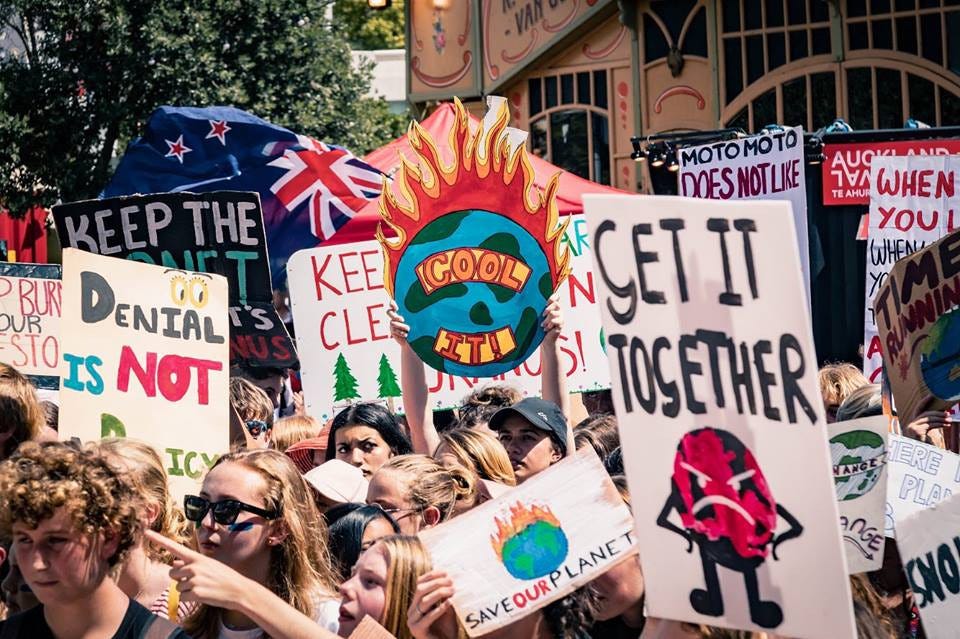
This also reminds me of how the media reacted to the Posie Parker protests at Albert Park; the School Strike 4 Climate NZ protests; or any public activities related to promoting the Treaty of Waitangi. As I recall with each of these, mainstream media spent inordinate amounts of time promoting, publicising and praising these events. In many cases being very specific about time, locations and even what to bring in support of the protests. At no point did these reporters seem to realise they were – respectively – promoting violence, school truancy or a rather singular narrative on a complex discussion.
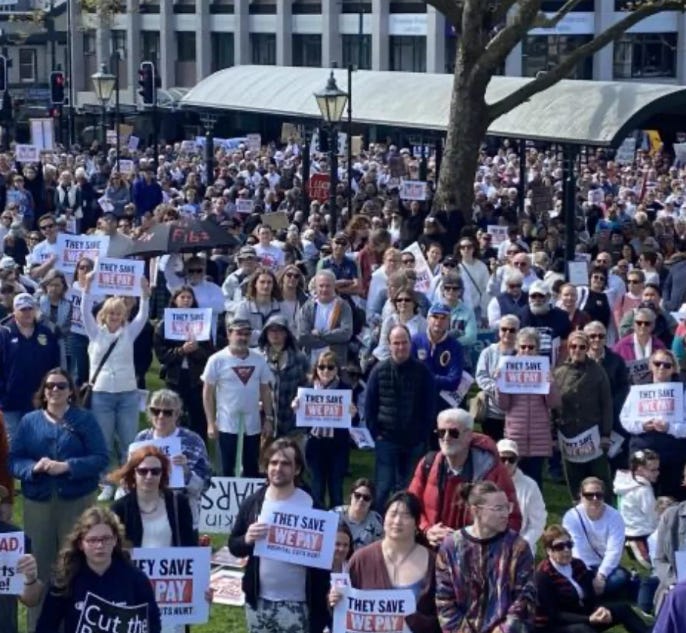
Again, the question has to be asked – how can the media report on the news that it is part of creating?
Which brings me to a reflective point around the media and trust. A recent report from Statistics New Zealand has shown trust in New Zealand’s institutions – be this parliament, the medical profession and media – are all going down. And this was from an already low base!!
Media in particular now have an exceptionally low level of trust within the New Zealand public. There are, of course, many reasons for this but I do wonder if media need to look more closely at themselves in the mirror. When reporters spend so much time promoting particular protests and causes, it is no surprise that the general public can then no longer trust them when it comes to reporting what is happening. It merely acts as another factor to reduce trust in our media.
To return to the title of this Substack – which is it? Or more accurately, are we as a society prepared to be more consistent rather than arbitrary. Are private businesses allowed to make their own rules (within some limits, I might add!) or not? And which side is mainstream media wanting to be one – the reporting of news or the creation of news they agree with?
The choice is theirs. And ours.
CHECK OUT MY OTHER MEDIA
I recently sat down with my friend and former deputy PM of Australia John Anderson FTSE AC. We discussed the simple, yet also complex question – why has the West lost confidence in itself? Check out our chat below. 👇
I’ve also had a number of great guests on my weekly radio show (Friday mornings, from 10am on Reality Check) and included former defence minister Ron Mark, on the sinking of the HMNZS Manawanui, as well as Jacob Leo Skilling on his incredible life story and how it has led him to setting up the charity, Broken Movement, to support those suffering trauma and mental health challenges.
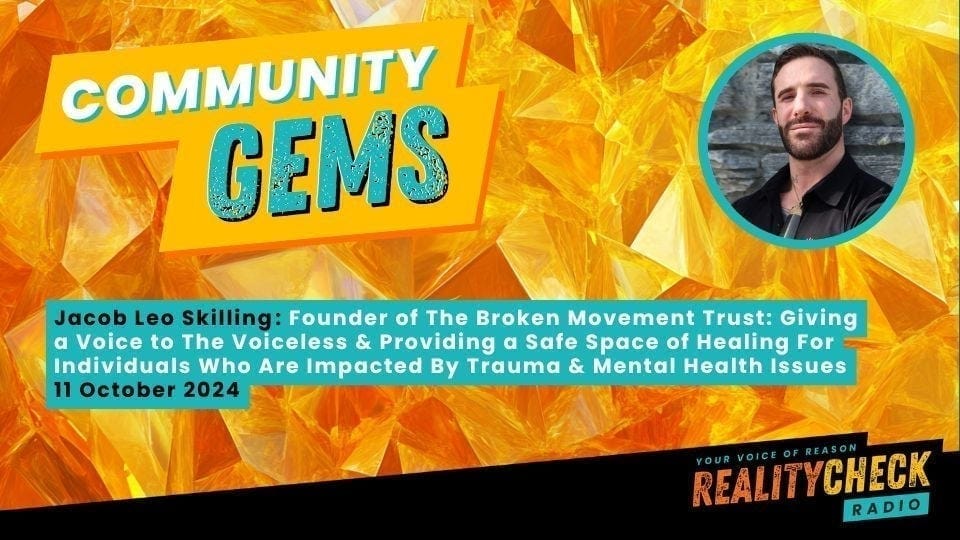
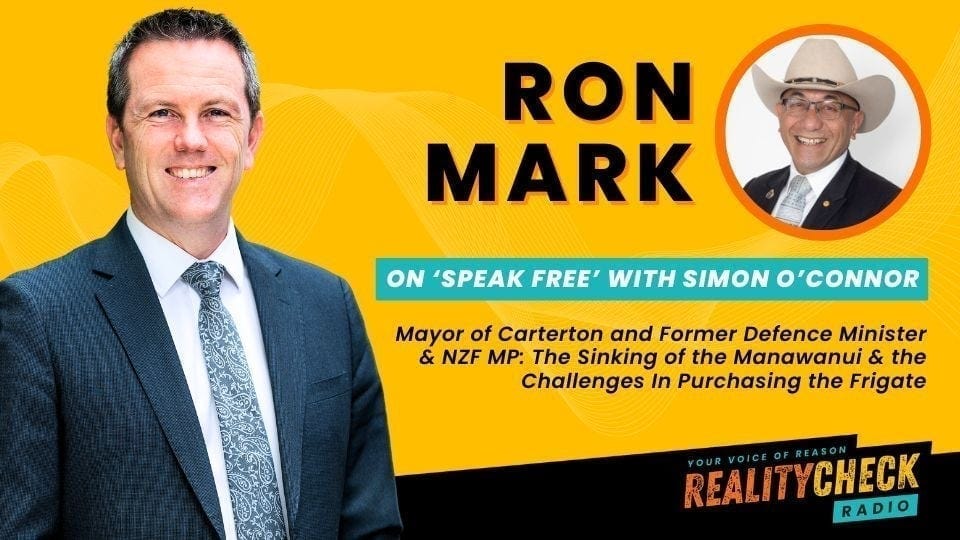
This article was originally published by On Point.









